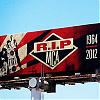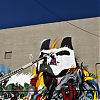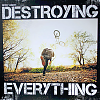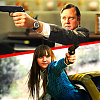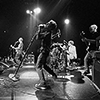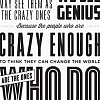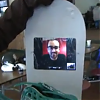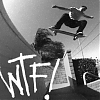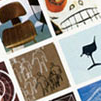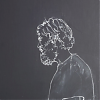goodstuff 027
peoplemusic
MUSIC WITHOUT BORDERS
I first heard Jahdan Blakkamoore on Earth Force, DJ Child’s mixtape tribute to classic roots reggae music, released on the Project Groundation label. The song, titled “She Told Me”, featuring 77 Klash, at first seemed a little out of place to be honest: a bare, hyper-digital track slotted between crucial hits from Gregory Isaacs and Dennis Brown. Over the next year or so I started checking for more of Jahdan’s material and I really began to understand the context in which his work fits seamlessly with the classic styles of the artists previously mentioned, while maintaining a modern sound that lends itself to the myriad of current interpretations of Caribbean music. “Diversity” is an understatement. From powerful one-drop tunes crafted by Lustre Kings Productions and I-Grade Records (as well as the standout “Cash Flow” from Diplo and Switch’s Major Lazer project) to the bass-heavy dubstep beats and cumbia-influenced dance tracks that characterize his recent collaboration with the Dutty Artz label titled “Buzzrock Warrior,” Jahdan Blakkamoore consistently voices thoughtful, positive music that crosses borders and sheds light on the versatility of roots and culture music.
I recently had the opportunity to sit down with Jahdan at the Elbo Room in San Francisco and ask him a few questions before he performed to a sold-out crowd at DJ Sep’s Sunday night staple “Dub Mission.”
Tell me a little bit about yourself, growing up, that kind of stuff…
Yeah, I was born in Georgetown, Guyana in 1972. I was raised right there in Campbellville which is a small part of Georgetown. I came to the states in 1980, when I was about eight years old. I went to Toronto, Canada and I flew over to New York from there. I went to school in Brooklyn and quickly caught on to reggae music and started listening to my vibes and stuff.
What initially got you interested in making music?
Well I initially heard some sound system… sound clash cassettes from Jamaica. I met some Jamaican bredren and we started sharing in music and culture… I got a hold of some King Jammy’s sound clash cassettes, and it all started from there. Early out I was heavily influenced by the original toasters of sound clash, such as Early B, Daddy U-Roy, Papa San, Tonto Irie, Charlie Chaplin, Brigadier Jerry. And of course artists like Bob Marley and The Heptones, Israel Vibration and artists like that heavily influenced my early growth. That was my school room, reggae roots and dancehall culture, and that lead me to other aspects of it as well.
How did your relationship with Matt Shadetek and the Dutty Artz label develop?
Well, I met Shadetek through 77 Klash, a good friend of mine, like four or five years ago. We hooked up at a studio session; Klash was recording with him and we quickly became buddies and just started vibing on music together. They started putting me on to dubstep, and grime, and jungle. These musics heavily inspired me because the root of those musics is all reggae, dub music, so I quickly gravitated to that and next thing you know I started voicing on the rhythms and they started giving me more and more homework and lessons in the music and the genre and I started getting more and more excited, then one thing lead to the next and we ended up doing [the Buzzrock Warrior] project.
Talk to me about working with Diplo and Switch on the tune “Cash Flow” for the Major Lazer album.
Yeah man, big up Switch and Diplo. Ya dun know, Major Lazer L.L.C… They sent me the track and I recorded it at my place, I did it with Moon—Andrew Moon from Lustre Kings—he recorded me and we co-wrote it, and we went in on the track together and all that. It was a real dope process. I just really attempted to go where I would go on any roots rhythm, to bring across roots and culture. It was a great experience and people love it, so I’m really glad for that opportunity.
Do you feel like the way you approach a project changes in any way depending in the genre?
Oh yeah, every project is completely different. Every project is unique to itself. My theory is that the music and the genre may change but my approach is always going to be rooted in culture, foundation, you know, good music, wholesome music that any genre can relate to. That’s what I want to do, transcend age and culture, transcend generation gaps and all that stuff. That’s what I want my music do ultimately.
—Omar Almufti, 09 March 2010
SHARE: FACEBOOK TWITTER LINKEDIN STUMBLEUPON G+
HOME
contents


